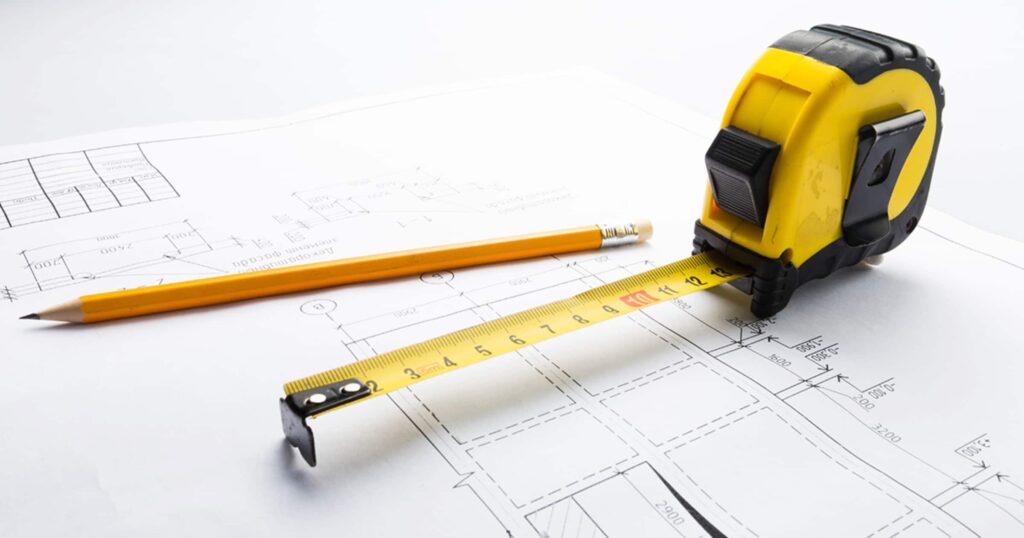
Construction cost estimate services can be provided by specialized firms or by individual consultants. firms typically offer a comprehensive range of services, from initial feasibility studies to final cost analysis, while individual consultants may focus on a specific aspect of the estimating process. When choosing a construction estimator, it’s important to find someone with experience in your specific type of project. This will ensure that they are familiar with the unique challenges and requirements of your project and can provide accurate and realistic estimates.
The plinth area cost estimate (PAC) is a document that provides an estimate of the total cost of construction for a building project. The PAC includes the costs of materials, labour, equipment, and other expenses. It is important for builders and developers to have a realistic PAC in order to avoid cost overruns during the construction process. The PAC can also be used as a marketing tool to attract potential buyers or tenants. When considering a construction project, potential buyers or tenants will often request a copy of the PAC in order to get an idea of the total cost of the project.
A Detailed Cost Estimate is an estimate of the probable cost of a project, which takes into account all relevant factors. This type of estimate is usually prepared by a professional estimator, and it provides a more accurate assessment of the cost than simple estimates. Detailed cost estimates are used to determine the budget for a project, and they are often required for large projects. The estimate includes a breakdown of the costs for labour, materials, and overhead. It also takes into account the time required for each task and the estimated quantity of each material. A detailed cost estimate can be a valuable tool in negotiating a contract price with a contractor.
A Revised Cost Estimate (RCE) is a formal amendment to the cost estimate of a project that has already been approved by the funding authority. An RCE is usually required when the scope of work changes, there are changes in the prices of materials or labor, or there are other unforeseen circumstances that impact the cost of the project. The RCE process typically begins with the submission of a Request for Revision (RFR) by the contractor to the project owner. The owner will then review the RFR and determine whether an RCE is warranted. If an RCE is approved, the contractor will submit a revised cost estimate to the owner for approval. Once the revised cost estimate is approved, the contractor can proceed with making the changes to the project.
A supplementary cost estimate is an estimate of the costs of a project that is prepared after the original estimate has been completed. This type of estimate is usually necessary when the scope of the project has changed, or when new information about the project has come to light. The supplementary cost estimate provides an updated assessment of the likely costs of the project, which can then be used to inform decision-making. In many cases, the supplementary cost estimate will be less accurate than the original estimate, as it is based on less information. However, it can still provide a valuable indication of the likely costs of a project, and help to ensure that it remains within budget.
Any business owner knows that one of the keys to success is effective cost management. After all, if you can’t control your expenses, it will be very difficult to turn a profit. Cost estimation is a crucial part of cost management, and it’s important to be as accurate as possible when estimating the cost of a project. Otherwise, you might end up underspending or overspending, both of which can have negative consequences.
There are a number of factors to consider when estimating costs, and it’s important to take them all into account. If you’re not careful, it’s easy to overlook something and end up with an inaccurate estimate. For example, you might forget to factor in the cost of permits or licenses, or you might underestimate the number of materials you’ll need. Inaccurate cost estimation can also lead to problems down the line if you end up going over budget on a project. Not only will this impact your bottom line, but it could also damage your reputation if word gets out that you’re not good at sticking to budgets.
To avoid these problems, it’s essential to take your time and do your research when estimating costs. Work with experienced professionals, and use software or online tools to help you keep track of all the factors involved. With careful planning and accurate cost estimation, you can keep your business on track for success.